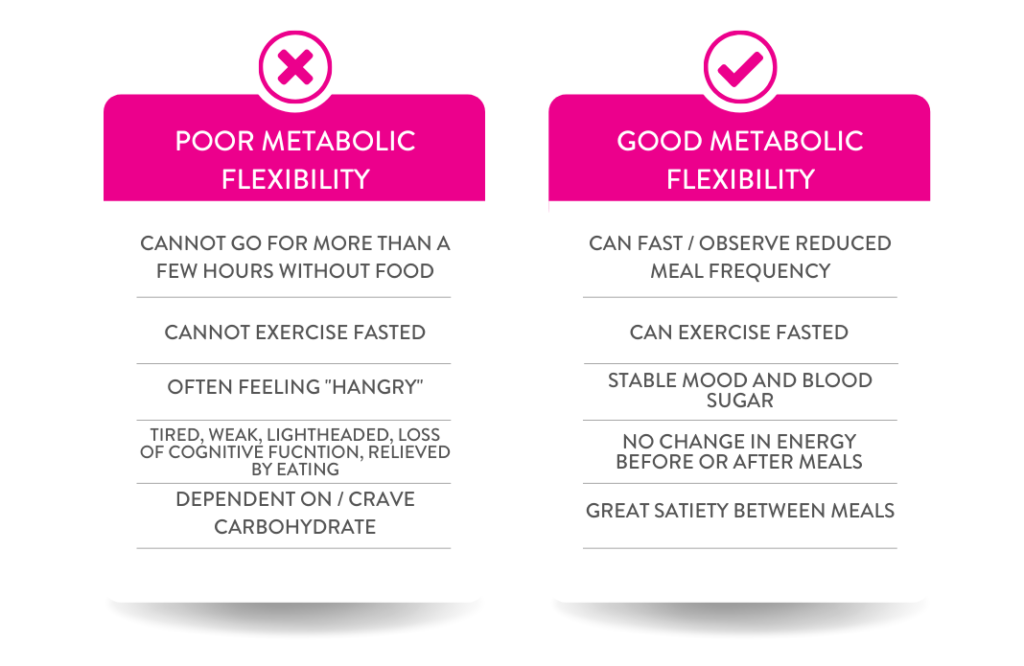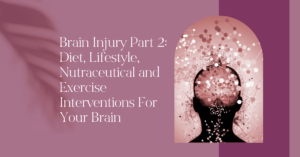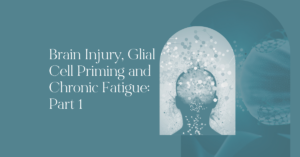Of course there are many many reason why sleep is a problem in CFS. These include and are not limited to:
- Hyperaroused Nervous System
- Parasites
- Mold Biotoxicity
- Gut Dysfunction (e.g. SIBO, dysbiosis)
- Inflammation
- MCAS
- Nutrient deficiencies
- Loss of circadian rhythm
- Blood Sugar dysregulation
This post will focus on the latter…
Context:
A healthy blood sugar response allows for the gentle functuation of blood sugar within a narrow range (ideally between 3.9mmol/L and 6.1mmol//L) across the day.
Blood sugar may increase after meals, but return to a stable level within a couple of hours until the next meal time.
Poor insulin sensitivity or poor food choices (not to mention other things) can cause blood sugar to rapidly elevate and later crash. This creates a burden on the adrenal glands and nervous system to stabilise blood sugar should it fall too low – which is why blood sugar regulation is part of nervous system support.

What Is Metabolic Flexibility
Metabolic flexibility is the ability to switch between using fats and sugars for fuel as appropriate for the situation. i.e. to be flexibile with the type of fuels the body can use at any point in time.
Poor metabolic flexibility can mean that the body becomes dependent on sugar (carbohydrate) as fuel and cannot fully utilise fat stores in the body.
The consequence is that the body may struggle to go without food even for a few hours because the systems which burn sugar as energy are dominant and the systems that burn fat as energy (e.g. mitochondria) have become dysfunctional due to poor use; the good old use or lose it philosophy.

Signs of Poor Metabolic Flexibility Include:
- Not being able to skip meals or feeling dependent on food wihin a few hours of eating
- Inability to exercise fasted
- Often feeling “hangry”
- Feeling tired, weak, light-headed or dizzy and losing cognitive function before meal times, this improves with eating
- Dependent on or crave carbohydrate
- Unable to tolerate a low carbohydrate high fat meal
Signs of Healthy Metabolic Flexibility Include:
- Being able to go for 5+ hours without eating
- Being able to exercise fasted
- Stable blood sugar (when self monitoring) and mood
- No change in energy or cognitive before or after meals
- Good satiety between meals
What has this got to do with sleep?
Between the hours or “desired” sleeping and waking we are typically in a fasted state – unless you have a midnight snack ![]()
If metabolic flexibility is poor, there is potential for blood sugar to drop during the night. Consequently, the nervous system will become activated and cortisol and adrenalin may be produced causing you to wake up.
This is typically the pattern in those people who fall asleep and then wake several hours later and struggle to get back to sleep (there are other explanations for other patterns).
If you suspect that this is a problem for you, you could use a continuous glucose monitor (CGM) and track blood sugar at night. If you use any wearables (e.g. oura ring) you can look for heart rate increases and heart rate variability decreases during the night.
Improving Metabolic Flexibility Supports Better Sleep
If poor metabolic flexibility is something that is influencing sleep quality and quantity, it is definitely something you want to address.I like to use blood sugar monitoring will all my clients even if all we discover is that their metabolic flexibility is great. At least we have done our due diligence to check.
If you resonate with the symptoms of poor metabolic flexibility here are some things you can do to support yourself:
- Clean up your diet and eliminate processed foods, especially processed carbohydrate.
- Avoid missing meals or under eating; the exception is when doing strategic fasts.
- Aim to stabilise blood sugar first and foremost by creating a stable routine of well balanced meals that support good blood glucose control – you can use blood glucose monitoring to check.
- Make sure every meal contains a good portion of protein, fat and fibre.
- Dose carbohydrate according to your blood sugar responses e.g. some people may tolerate more carbohydrate than others and the goal is to find your personal sweet spot.
- Once a stable routine has been created, you can explore reducing meal frequency or eliminating snacks.
- Once a stable routine has been created you can play around with a compressed feeding window (anywhere between 8-12 hours).
- If you are exercising, you can explore fasted exercise as appropriate for your current health and goals.
- Explore other potential causes of blood sugar dysregulation which include stress, trauma and nervous system dysregulation, nutrient deficiencies, inflammation and infections, gut and mitochondrial dysfunction.
Personal Story
Blood glucose control was such a big game changer for me – it was also a massive blindspot.I was already following many of the principles above – eating whole, unprocessed foods with a balanced amount of protein, carbohydrate, fat and fibre.
However, when I started tracking glucose levels using a finger prick monitor I was having an inappropriate reaction to these supposedly healthy meals.I had to strip my carbohydrate intake all the way back and follow a ketogenic diet (note: this is not appropriate for everyone’s needs, just an example). I used fasting a lot to restore my insulin sensitivity and had to address digestive health and nervous system regulation.
What inspired me was that I really felt the benefit. Insulin is a big player in inflammation and restoring healthy insulin function is supportive of healthy mitochondria function – and we all know those mitochondria are important!
You have to be patient and you have to be consistent to experience the benefit.
Would you like some more help?
My clients hire me to be the project manager of their health. Health is personalised and nuanced and many do not want to waste time and energy researching, googling and trying to work out what applies to them, what doesn’t, and what they need to do for their unique situation.
I work with clients 1:1 for a minimum of six months to help them carve out a road map to health based on the framework I have described above.
The women I work with experience fatigue, burnout and chronic dis-ease. They are usually high achievers, purpose driven and usually feel a deep need to serve others in their careers and life. Fatigue, brain fog and low energy is impacting their day to day experience of life and their ability to live out their purpose, stripping life of it’s meaning.
Asking for help doesn’t always come naturally and when you work with me, you can finally soften, surrender and know that you will be taken care of. You can leave all the work to me and you can just focus on what you need to do to be well. ⠀⠀⠀⠀⠀⠀⠀⠀
⠀⠀⠀⠀⠀⠀⠀⠀⠀
Working with me includes:⠀⠀⠀⠀⠀⠀⠀⠀⠀
⠀⠀⠀⠀⠀⠀⠀⠀⠀
- Full health history and review of previous laboratory testing to create a bespoke 6 month recovery road map ⠀⠀⠀⠀⠀⠀⠀⠀⠀
⠀⠀⠀⠀
- Bi-monthly 1:1 Functional Medicine Consultations where we review progress and I hold your hand and guide you through the journey one step at a time⠀⠀⠀⠀⠀⠀⠀⠀⠀
⠀⠀⠀⠀⠀⠀⠀
- Functional Testing, interpretation and personalised guidance on food, supplements, exercise and lifestyle⠀⠀⠀⠀⠀⠀⠀⠀⠀
⠀⠀⠀⠀⠀⠀⠀⠀⠀
- Nervous system rebalancing sessions and an extensive toolbox to support a healing state⠀⠀⠀⠀⠀⠀⠀⠀⠀
⠀⠀⠀⠀⠀⠀⠀⠀⠀
- Reprogramming energetically expensive personality traits to free up energy for wellbeing⠀⠀⠀⠀⠀⠀⠀⠀⠀
⠀⠀⠀⠀⠀⠀⠀⠀
- Weekly access to my full support via email for accountability and to maintain momentum⠀⠀⠀⠀⠀⠀⠀⠀⠀
⠀⠀⠀⠀⠀⠀⠀⠀⠀
My goal is to help you recover your energy and aliveness so that you can achieve your goals in a sustainable way and live a life of purpose, happiness and joy!⠀⠀⠀⠀⠀⠀⠀⠀⠀
⠀⠀⠀⠀⠀⠀⠀⠀⠀
Let’s do it together! ⠀⠀⠀⠀⠀⠀⠀⠀
⠀⠀⠀⠀⠀⠀⠀⠀⠀
I’d love to know more about you, what you have explored so far and how I can help. Please complete this form and I’ll get back to you with some feedback and some suggestions about how we could move forward together! ⠀
⠀⠀









